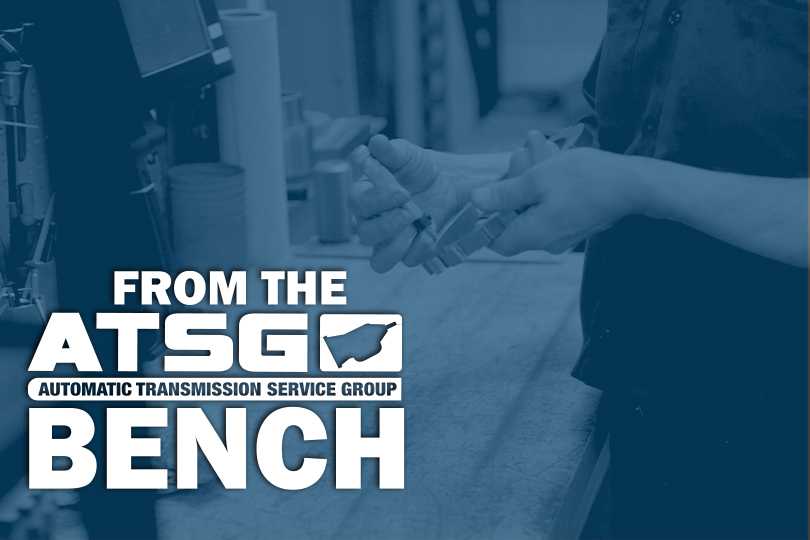EPA LAUNCHES CRACKDOWN ON EMMISIONS DEFEAT DEVICE MAKERS
After finding dozens of aftermarket parts companies in violation of the Clean Air Act for selling emissions defeat devices last year, the Environmental Protection Agency has announced that it will step up enforcement against such companies and clamp down on any aftermarket parts designed to bypass emissions controls, whether intended for on- or off-road use.
The announcement came after the EPA reached its most recent settlement with an aftermarket parts seller, in which it found Punch It Performance and Tuning out of Florida to have sold more than 20,000 devices that “included hardware components and electronic tuning software, known as ‘tunes,’ that hack into and reprogram a motor vehicle’s electronic control module to alter engine performance and enable the removal of filters, catalysts and other critical emissions controls that reduce air pollution.”
The owners of Punch It Performance and Tuning, who dissolved the company sometime after the EPA’s investigation began in July 2015, were ordered to pay a civil penalty of $850,000 and surrender all software and source code they used to create the devices in question, according to the EPA. Punch It Performance appeared to focus largely on diesel-related products, including EGR-delete tunes.
“EPA will vigorously pursue and prosecute companies who attempt to circumvent emission controls that are required to reduce air pollution,” Susan Bodine, the EPA’s assistant administrator for enforcement and compliance assurance, said in a statement. “This case illustrates why stopping the manufacture, sale, and installation of aftermarket defeat devices is an EPA National Compliance Initiative.”
Some of the other aftermarket companies that the EPA has pursued enforcement action against over the last year also specialized in tunes and other products for diesel engines. For selling tunes, largely for heavy-duty diesel engines, Performance Diesel Inc. was ordered to pay a civil penalty of $1.1 million in September; for selling catalytic converter-delete aftermarket exhaust systems, California-based MagnaFlow was ordered to pay a $612,849 penalty in March; and for selling catalytic converter-delete aftermarket exhaust systems, Nevada-based JAMO Performance Exhaust was ordered to pay a $10,000 penalty in August.
In addition, the EPA secured settlements against a number of companies that sold parts for gasoline-engine vehicles over the last year, among them Nevada-based Flowmaster, which paid a $270,000 penalty in March; California-based OBX Racing Sports, which paid a $25,000 penalty in April; California-based Weistec Engineering, which paid an $8,500 penalty in March; and California-based APEX Integration, which paid a $5,000 penalty in August. All were for selling either tunes or catalytic converter-delete exhaust components.
In all, the EPA secured settlements against 42 companies in 2019, more than in any one year over the past decade and a 40-percent increase over 2018. Since 2010, the EPA has secured settlements against 298 companies for Clean Air Act violations involving vehicles and engines.
According to the EPA, its National Compliance Initiative, which “will focus on stopping the manufacture, sale, and installation of defeat devices on vehicles and engines used on public roads as well as on nonroad vehicles and engines,” is slated to run from 2020 through 2023, though the August and September enforcement actions listed above were considered part of the initiative. As the EPA notes, doing so will reduce mobile source pollutants including smog-forming volatile organic compounds and nitrogen oxides, various toxic air pollutants such as cancer-causing benzene, carbon monoxide, particulate matter or soot, and greenhouse gases. In addition to adverse effects on the environment, these pollutants are responsible for asthma, heart disease and other illnesses.
Stuart Gosswein, the senior director of federal government affairs for the Specialty Equipment Market Association, said SEMA is following the National Compliance Initiative. “The EPA has always had the authority to enforce clean air laws on any emissions-related parts that would take a vehicle out-of-compliance,” he said. “But (the National Compliance Initiative) does confirm the EPA’s recent increased level of review and potential enforcement.”
According to SEMA’s Guide to Government Regulation of Emissions-Related Aftermarket Parts, it’s up to aftermarket parts manufacturers to obtain certification– in the form of a CARB EO number – that their parts don’t fall afoul of the Clean Air Act’s requirement not to tamper with emissions controls.
Generally, any product that affects air flow into or out of the engine, impacts the containment or delivery of fuel or affects the functionality of an emissions control system or device must demonstrate emissions compliance to be considered legal for street use. That includes but is not limited to intake systems, exhaust components, tuning products, intercoolers, turbos and superchargers. In addition, SEMA warns that selling any aftermarket parts with the disclaimers “for off-road use only” or “for racing use only” is “essentially meaningless… if the part can be installed on a highway vehicle.”
As pointed out during the debate over the SEMA-backed Recognizing the Protection of Motorsports Act, re-introduced in Congress late last year (S.2602, H.R.5434), the EPA does not make a practice of prosecuting individuals who have bought and made use of emissions control defeat devices, only the manufacturers selling those devices. At the time, Gosswein noted that the EPA’s targeting of such companies were examples of the enforcement mechanisms already in place working like they should.


